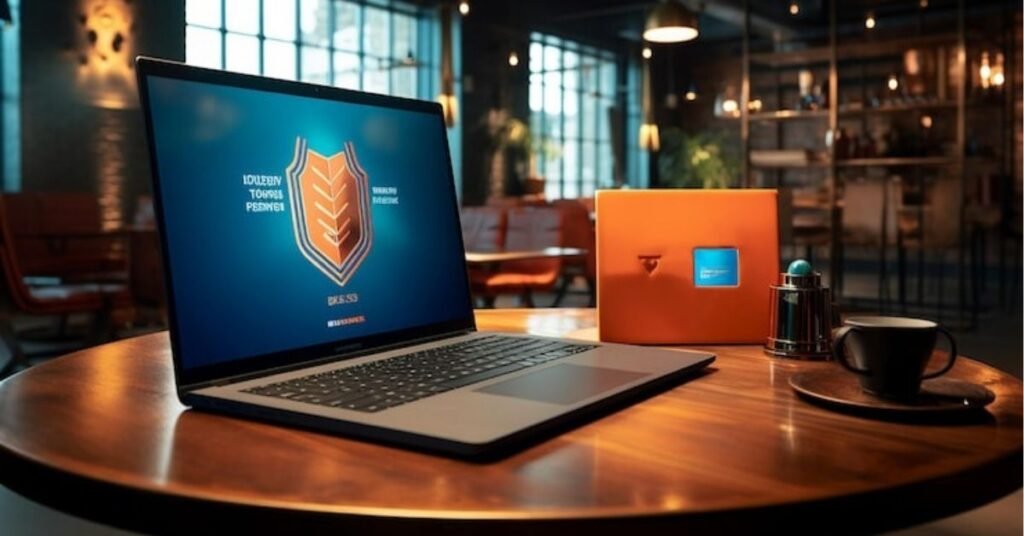Choosing the right laptop for cyber security studies is one of the most important investments a student can make. Unlike standard college laptops used for writing papers or attending online classes, cyber security laptops must handle heavy workloads — from running multiple virtual machines to simulating network attacks and analyzing malware.
In 2025, cyber security students need machines that combine high performance, durability, and flexibility. Whether you’re learning ethical hacking, digital forensics, or penetration testing, your laptop must deliver consistent performance without lagging under pressure.
Why a Powerful Laptop Matters for Cyber Security Students
Cyber security is a hands-on, technical field. You’ll be working with software such as Kali Linux, Wireshark, Metasploit, VirtualBox, VMware, and other resource-intensive tools. A weak or slow device can easily disrupt lab performance and limit your learning potential.
A capable laptop allows you to:
- Run multiple virtual machines simultaneously.
- Test different operating systems (Windows, Linux, macOS).
- Perform penetration tests efficiently.
- Analyze large datasets and perform log monitoring smoothly.
- Learn advanced scripting, automation, and encryption tools.
A solid machine isn’t a luxury — it’s your foundation for skill building and real-world readiness in the field of cyber defense.
Key Features to Look for in a Cyber Security Laptop (2025)
Before investing, prioritize the following specifications:
| Feature | Recommendation | Why It Matters |
|---|---|---|
| Processor (CPU) | Intel i7/i9 or AMD Ryzen 7/9 | Handles heavy multitasking and simulations |
| RAM | Minimum 16GB (upgradeable to 32GB+) | Supports multiple VMs and smooth performance |
| Storage | 512GB NVMe SSD or higher | Faster boot, data access, and lab performance |
| Graphics (GPU) | Optional but useful (NVIDIA RTX preferred) | For GPU-based hash cracking and simulations |
| Battery Life | 7–10 hours | Ideal for long study or project sessions |
| Ports | USB-C, HDMI, Ethernet, Wi-Fi 6E | Ensures easy connectivity in labs |
| Build Quality | Lightweight, durable chassis | Withstands daily college and travel use |
Best Laptops for Cyber Security Students in 2025
Here are the top-performing laptops that perfectly balance power, portability, and long-term value for cyber security learners:
1. Dell XPS 15 (2025 Edition)
A proven all-rounder with Intel i7/i9 processors and stunning display quality. Ideal for multitasking between research, labs, and coding.
2. Lenovo ThinkPad X1 Carbon (Gen 12)
Renowned for its durability, excellent keyboard, and high-end performance. Great for professionals and students who value precision and portability.
3. Apple MacBook Pro (M3 Chip)
Powerful yet energy-efficient. While macOS isn’t native for penetration testing, it works flawlessly with virtual environments like Parallels and VMware Fusion.
4. ASUS ROG Zephyrus G14
A gaming laptop tuned for performance — its AMD Ryzen processor and RTX GPU make it perfect for GPU-accelerated tasks, simulations, and cyber labs.
5. HP Spectre x360 (2025 Model)
A premium 2-in-1 convertible with excellent battery life and flexibility, great for students balancing both creative and technical coursework.
Best Laptops for Cyber Security Students 2025: Top Models and New Innovations
In 2025, the laptop market for cyber security students has evolved significantly. Modern laptops now offer upgradeable designs, longer battery life, and enhanced compatibility with Linux distributions like Kali Linux, Ubuntu, and Parrot OS — all crucial for cyber security learners.
Let’s explore the best-performing and most reliable laptops for cyber security students in 2025.
1. Framework Laptop 16 (2025 Edition) – The Future-Proof Choice
The Framework 16 is an ideal pick for students who value upgradeability and sustainability.
- Processor: Intel Core Ultra 9 or AMD Ryzen 9
- RAM: Up to 64GB DDR5
- Storage: Modular NVMe SSD (customizable)
- Highlights: Fully modular design allows you to replace or upgrade parts easily.
- Why It’s Great: Perfect for long-term students who want a device that evolves with technology rather than becoming outdated.
This laptop supports multiple Linux distributions and is designed for high-performance computing, making it one of the best long-term investments for cyber security majors.
2. Lenovo Legion 7i Gen 9 – Powerhouse for Virtual Labs
If you want uncompromising power, the Lenovo Legion 7i Gen 9 stands out in 2025.
- Processor: Intel Core i9 (14th Gen)
- RAM: 32GB DDR5 (expandable)
- GPU: NVIDIA RTX 4070
- Why It’s Perfect: Designed for heavy workloads like virtual labs, penetration testing, and GPU-accelerated simulations.
With its superior cooling system and high refresh display, it’s not just for gamers — it’s for cyber warriors who run advanced simulations and multitask across several OS environments.
3. HP Spectre x360 14 (2025 Model) – Stylish and Capable
A sleek and versatile 2-in-1 that blends style with serious computing power.
- Processor: Intel Core Ultra 7
- RAM: 16GB
- Storage: 1TB SSD
- Why It’s Great: Long battery life, excellent keyboard, and bright OLED screen.
Perfect for students who want a laptop that handles both academic research and technical cyber security projects — without sacrificing portability.
4. Razer Blade 15 (2025 Edition) – GPU-Accelerated Excellence
Built for gamers but loved by cyber professionals, the Razer Blade 15 offers exceptional performance and build quality.
- Processor: Intel i9 + NVIDIA RTX 4080
- Why It’s Ideal: Supports tools that benefit from GPU acceleration, such as password cracking and advanced data processing.
Its premium aluminum design and high-end cooling make it perfect for students doing intensive labs or ethical hacking projects.
5. Dell XPS 17 (2025) – Productivity and Performance Combined
If you prefer a larger screen and workstation-level performance, the Dell XPS 17 is an unbeatable choice.
- Processor: Intel i9 / RTX 4060
- Display: 17-inch 4K InfinityEdge
- Why It’s Great: Ideal for multitasking, research, and detailed network analysis.
It’s a premium investment for students serious about professional cyber security or research careers.
6. Apple MacBook Pro M3 (2025) – Best for Cross-Platform Developers
Apple’s latest M3 chip makes this MacBook one of the fastest laptops available in 2025.
- Why It’s Great: Extremely efficient for coding, network simulation, and virtual environments.
- Bonus Tip: Use Parallels Desktop or UTM for running Linux and Windows VMs.
This is a perfect fit for students who love Apple’s ecosystem but still need flexibility for technical tasks.
Quick Comparison Table (2025 Top Picks)
| Model | CPU | RAM | Special Feature | Best For |
|---|---|---|---|---|
| Framework 16 | Intel/AMD | Up to 64GB | Modular, upgradeable | Long-term learning |
| Lenovo Legion 7i | Intel i9 | 32GB | GPU power | Virtual labs |
| HP Spectre x360 | Intel Ultra 7 | 16GB | 2-in-1 design | Portability |
| Razer Blade 15 | Intel i9 + RTX 4080 | 32GB | GPU acceleration | Pen testing |
| Dell XPS 17 | Intel i9 | 32GB | 4K Display | Productivity |
| MacBook Pro M3 | Apple M3 | 16GB | Parallels + Linux | Cross-platform users |
Best Budget and Cheap Laptops for Cyber Security Students (2025 Edition)
Not every cyber security student can afford a premium laptop — and that’s perfectly fine. Many budget-friendly laptops today deliver solid performance, Linux compatibility, and upgradability for future needs.
The key is to balance cost with the ability to handle tasks like coding, running lightweight VMs, and performing network simulations.
Let’s explore the best budget laptops for cyber security students in 2025, along with the most affordable yet practical options.
1. Acer Aspire 7 – Budget-Friendly Powerhouse
The Acer Aspire 7 continues to be one of the best budget laptops for cyber security learners in 2025.
- Processor: AMD Ryzen 5 7535HS / Intel Core i5 13th Gen
- RAM: 16GB (expandable to 32GB)
- Storage: 512GB SSD
- Why It’s Great: Delivers strong multitasking performance at an affordable price.
It easily handles penetration testing, coding, and Linux dual-boot setups. Its upgrade-friendly design makes it a smart choice for students who plan to expand storage or memory later.
2. Lenovo IdeaPad Gaming 3 – Affordable and Reliable
A great option for students who want a mix of affordability, performance, and reliability.
- Processor: AMD Ryzen 7 7735HS
- GPU: NVIDIA GTX 1650
- Why It’s Great: Ideal for running lightweight VMs and security tools without lag.
The IdeaPad Gaming 3 also supports dual-boot systems, allowing students to install Kali Linux or Ubuntu alongside Windows 11.
3. HP Pavilion 15 – Simple, Upgradable, and Effective
The HP Pavilion 15 is an excellent laptop for beginners in cyber security who want performance without breaking the bank.
- Processor: Intel Core i5 1335U
- RAM: 8GB (upgradeable to 16GB)
- Storage: 512GB SSD
- Why It’s Great: Affordable, portable, and ideal for students working on foundational cyber security courses.
Its expandable RAM and SSD slots allow for easy upgrades when workloads increase.
4. Asus VivoBook 15 – Perfect for Students Starting Out
The VivoBook series offers sleek, lightweight laptops at great prices.
- Processor: Intel Core i5 or AMD Ryzen 5
- RAM: 8GB (upgradeable)
- Display: Full HD with slim bezels
- Why It’s Great: Excellent build quality, comfortable keyboard, and Linux compatibility.
It’s a fantastic entry-level laptop for coding, cloud-based labs, and ethical hacking fundamentals.
5. Refurbished Laptops – A Smart Budget Hack
Students on tight budgets should also consider refurbished business laptops such as:
- Dell Latitude 5490 / 5500 Series
- Lenovo ThinkPad T480 / T490
Why choose refurbished?
- Affordable yet durable
- Easily upgradeable (RAM + SSD)
- Great Linux support
- Reliable keyboards and cooling systems
A refurbished ThinkPad with 16GB RAM and an SSD can outperform many new budget laptops at half the price.
6. Chromebooks with Linux Support – Minimal Yet Capable
For beginners or students working in cloud-based labs (like AWS Educate or Azure for Students), certain Chromebooks are surprisingly capable.
- Best Pick: Acer Chromebook Spin 713
- Why It’s Great: Supports Linux apps and can run lightweight penetration testing tools.
While Chromebooks can’t handle heavy VM workloads, they’re suitable for theory classes, Python scripting, and online simulation tools.
Pro Tip: Prioritize Upgradeability
If you’re choosing a budget laptop, make sure it supports:
- At least one upgradeable RAM slot (so you can expand to 16GB or 32GB later)
- Replaceable SSD (for more storage and faster performance)
This ensures that your laptop grows with your cyber security learning journey, saving you from future hardware limitations.
Conclusion:
Selecting the best laptop for cyber security studies isn’t just about specs — it’s about preparing for a career built on performance, adaptability, and innovation.
Whether you’re a beginner exploring ethical hacking or an advanced student managing multiple virtual machines, the right laptop becomes your most trusted tool.
For 2025, models like the Lenovo Legion 7i, Dell XPS 15, and Apple MacBook Pro (M3) stand out for professionals who demand power and reliability.
Meanwhile, students on tighter budgets can still thrive with options like the Acer Aspire 7 or Lenovo IdeaPad Gaming 3, which deliver remarkable performance at accessible prices.
When choosing your laptop, remember to:
- Prioritize RAM and storage over design or brand appeal.
- Ensure Linux compatibility for real-world cyber security tools.
- Choose a durable, upgradeable device that can grow with your learning needs.
Your laptop should be more than just a study device — it’s a foundation for mastering cyber defense, ethical hacking, and digital security in an evolving tech landscape.
FAQs:
1. What laptop specs are best for cyber security students?
For cyber security, aim for:
- Processor: Intel i7 / Ryzen 7 or higher
- RAM: 16GB minimum (32GB recommended for heavy labs)
- Storage: 512GB SSD or more
- GPU: Optional, but helpful for GPU-based simulations
2. Can I use a MacBook for cyber security?
Yes, MacBooks (like the M2 or M3 Air/Pro) are excellent for coding, scripting, and virtualization. However, for deep penetration testing or Linux-based tasks, dual-booting or using VMs like Parallels or UTM is often necessary.
3. Is 8GB RAM enough for cyber security?
It can handle basic tasks, but 16GB is the ideal minimum for running virtual machines and tools like Kali Linux or Metasploit smoothly.
4. Which operating system is best for cyber security students?
Linux is the go-to OS for cyber security professionals. However, dual-booting Windows and Linux or running Linux in a virtual environment offers the most flexibility.
5. Are gaming laptops good for cyber security?
Yes, gaming laptops like the ASUS ROG Zephyrus G14 or Lenovo Legion 5 are great for cyber security students. Their powerful CPUs and GPUs handle multitasking, encryption testing, and simulations with ease.
6. Can I learn cyber security with a budget laptop?
Absolutely. A mid-range or refurbished laptop with at least 16GB RAM and SSD storage can run most educational tools. Many universities also provide cloud-based labs, reducing the need for high-end devices.
7. Should I prioritize battery life or performance?
If you’re mostly studying in labs or at home, prioritize performance. But for students constantly on campus, battery life of 8+ hours is highly valuable.
Final Thoughts
The best laptop for cyber security students in 2025 is one that matches your academic level, learning goals, and financial situation.
Whether you’re practicing network defense, analyzing threats, or building ethical hacking skills, your device should support exploration, innovation, and growth.
Invest wisely — because in cyber security, your tools define your efficiency and your edge.


